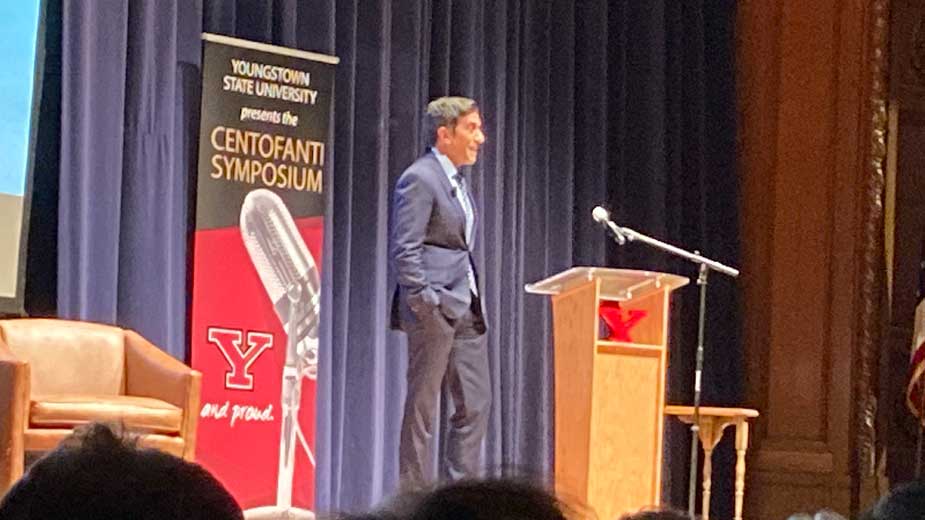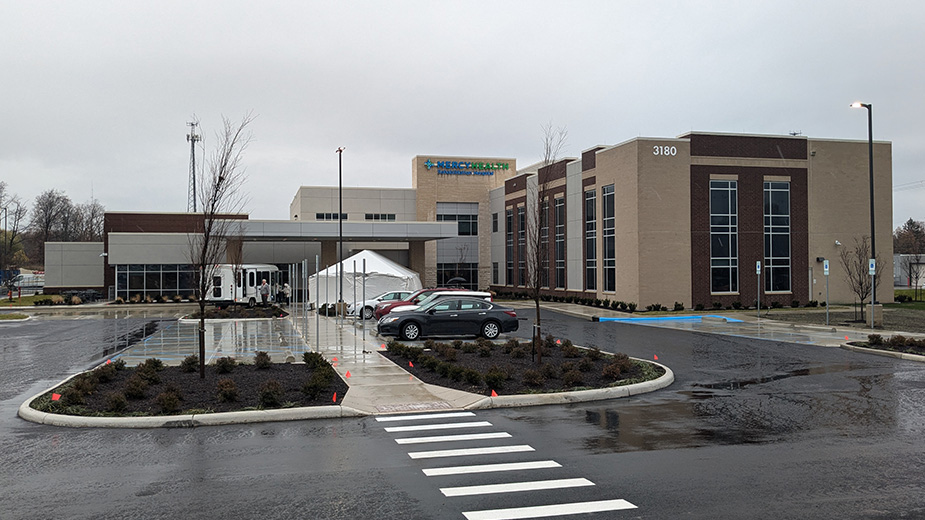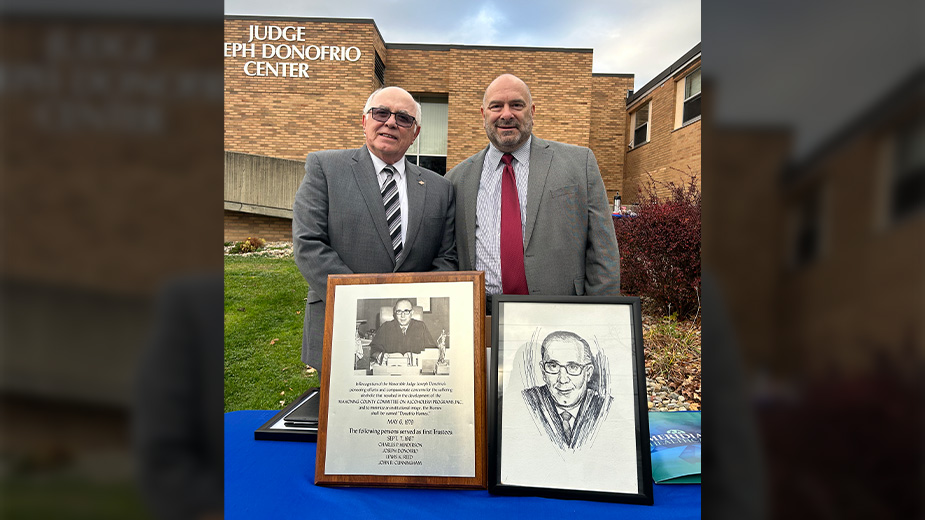Sanjay Gupta Shares Stories of Health, Humanity in YSU Lecture
YOUNGSTOWN, Ohio – Dr. Sanjay Gupta has been living “at the intersection of media and medicine” for years.
With that in mind, the chief medical correspondent for CNN and practicing neurosurgeon said he looks for the stories that stick with people. “They are the highest-impact journalism,” said the doctor known for reporting from war zones and natural disasters, and on medical breakthroughs.
Gupta relayed some of those stories during a presentation at Stambaugh Auditorium Wednesday night. A rapt audience filled the hall for his address, which was followed by a question and answer session with Dr. Anita Hackstedde, president and CEO of Salem Regional Medical Center.
Gupta’s appearance was part of the Skeggs Lecture Series at YSU. Earlier in the day, he met with students and faculty on the campus.
The surgeon said he was eager to visit Youngstown and meet with students and medical people here. “It restored my faith in humanity,” he said.
In his address, Gupta told of a trip he took deep in the Amazon rainforest to observe a primitive tribe whose members live longer than anyone else on earth, and have the healthiest hearts.
He lived with them to determine how they move, eat and rest. What he found surprised him. Their diet was 70% carbohydrates, albeit in unprocessed food. They walked a lot, roughly 17,000 steps a day, but rarely ran and almost never sat. And they slept eight and a half to nine hours a night.
“None of that sounds hard and they hardly have any heart disease,” Gupta said. “We spend a billion dollars a day on heart disease in the United States, and still many die every day. They don’t even have a health care system and have hardly any heart disease.
“I’m not suggesting that this is easy, but maybe it’s not as hard as we think either,” Gupta said.
When asked whether the COVID-19 pandemic is fading and becoming endemic, or a regular part of life, he said it is but it also depends on how you define “endemic.”
Gupta said he wrote an article in the spring of 2020 declaring that we were in a pandemic. That much was obvious, he said, based on the numbers.
“But it’s less clear when we are exiting it,” he said. “One criteria is the disease no longer causes significant disruption to a society. With the flu, which is endemic, we could have 60,000 die a year. It’s a huge cost and a lot of people.
“We are [currently] having 400,000 dying a year [of COVID-19]. That’s too many,” he continued. “But what we see is that unless hospitals are becoming overwhelmed, [we see a number] as acceptable. I don’t think we are going to land at 400,000 deaths per year. But we’re getting to the point where we are willing to accept a very high level of death.”
Gupta said the COVID-19 virus is evolving into one that is more contagious but less lethal. “That’s how viruses typically evolve,” he said. “They trade one for the other.”
Looking to the future, Gupta said viruses will continue to jump from animals to humans.
“How we respond to future pandemics will be based on what we learned from this one,” he said.
Pictured: Dr. Sanjay Gupta speaks during his address at Stambaugh Auditorium Wednesday night.
Copyright 2024 The Business Journal, Youngstown, Ohio.



